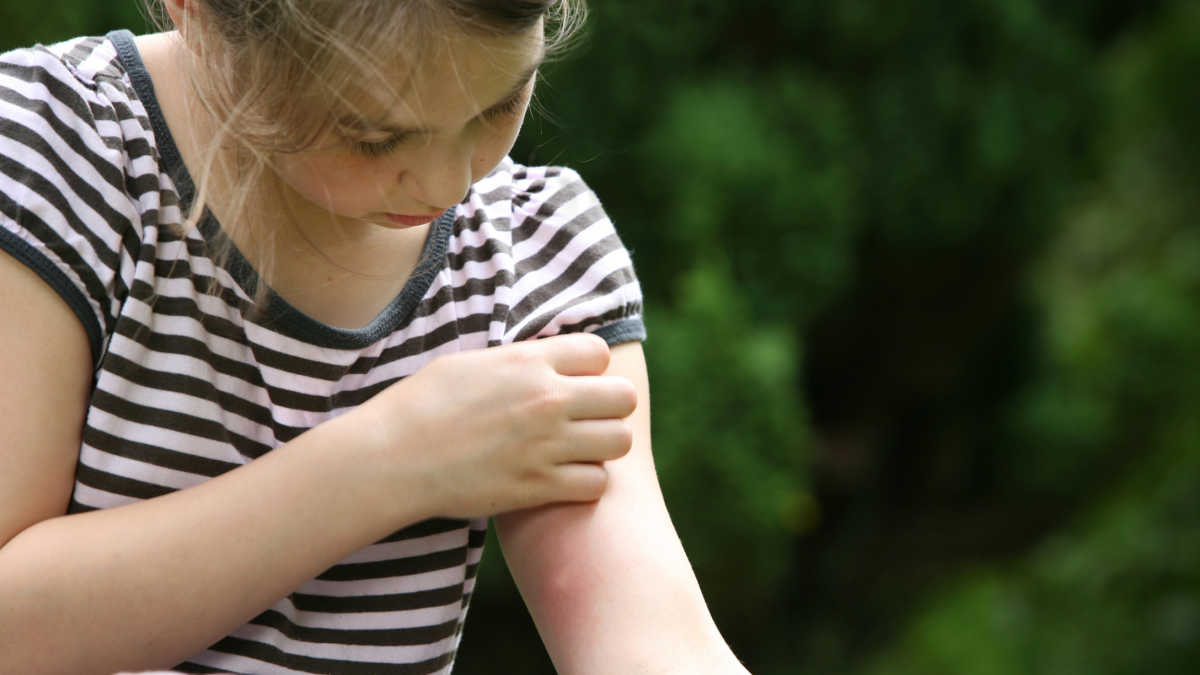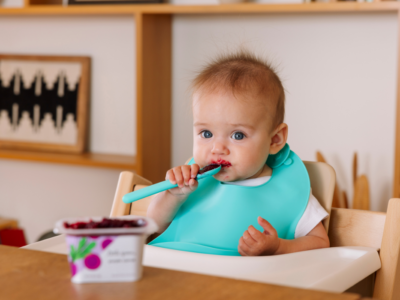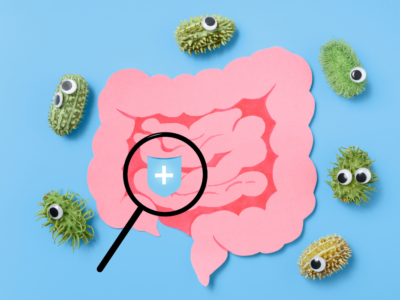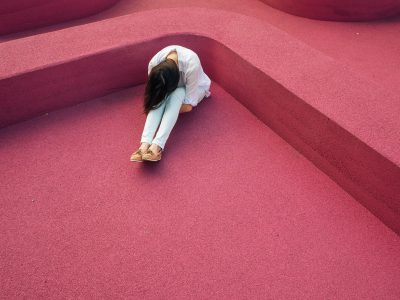As a parent (who also happens to be a pediatrician), I often feel like a walking First Aid Kit. But nothing can quite prepare you for the trials and tribulations of summertime. From pool days to camping trips and every activity in between, there’s bound to be a few bumps and scrapes along the way. It’s safe to say, we all want to avoid the tears and tantrums that come with these situations, so I’m sharing a few of the most common summer injuries—and how to deal with them.
Bug bites
As we venture outside with our littles this summer, it’s important to do so with bug spray in tow.. If you use an insect repellent with DEET, be sure to reach for one with no more than 30% and avoid using it on children under two months of age. As always, you should refer to the directions before using any bug spray on your babe (or yourself)! When using, make sure to spray only on clothing and exposed skin, and avoid inhalation. If you want to use bug spray on your face as well, it is best to apply it to your hands first and then rub onto your skin.
Even when you do remember to use bug spray, bites can sometimes be inevitable. Most will heal quickly, but some can be incredibly bothersome—especially for our not-so-patient little ones. Try Benadryl, calamine lotions, an oatmeal bath (such as Aveeno), cool compresses, or ice packs to alleviate the itches. Other anti-itch creams, such as hydrocortisone, are helpful as well, although it’s important to refer to your physician before using those. Rarely, bug bites can get secondarily infected so if there is any concern of increasing redness or infection, contact your pediatrician.
Mosquito bites are just the tip of the iceberg— ticks are cause for greater concern as these bites are responsible for some tick borne illnesses, including the more commonly known Lyme disease. In order to avoid these bugs, wear protective clothing and use bug spray when in wooded, grassy areas. It might sound like overkill, but doing a tick check on the body after spending time in the woods is crucial. To make sure all your bases are covered, add in a shower or bath after your daytime adventure as well.
Sunburn
Of course, using SPF is beyond important but sometimes, your babe can get a burn even with all of your precautions. If your mini does develop a sunburn, aloe products work well to soothe the skin and anti-inflammatories like ibuprofen can help bring some relief. Keep your mini out of the sun for a few days (or at least cover up the affected area) until the burn has healed and enjoy a little more inside time! If you have any concerns about the severity of the burn, be sure to call your pediatrician.
Dehydration
Staying hydrated is crucial year round. However, the heat of the summer can make it particularly difficult. When out in the summer months, be sure to keep a water bottle out that your mini can sip on and, every few hours, rally the troops to come inside for a snack and some water. If your little one is feeling weak and tired or seems less energetic or just not themselves, it could be that they are getting dehydrated. If you notice this, have your babe rest in a cool spot indoors and provide them with lots of fluids.
Out of all your littles, babies are at the greatest risk of being dehydrated and they can’t easily communicate how they’re feeling. Signs to initially watch out for include fussiness, crankiness, or excessive crying. Other signs may be a less than usual urination or wet diapers.
Heat Exhaustion and Heat Stroke
Another concern during the hot summer months is heat related illness, including the more severe heat exhaustion and heatstroke. It is so important to know and understand the signs to look for in your children and how to prevent overheating.
Let’s get one thing straight: heat exhaustion and heat stroke are not the same thing. However, the two conditions do go hand-in-hand as heat exhaustion can turn into heat stroke, which is a very serious and life-threatening condition. Heat exhaustion occurs when your body becomes too hot, particularly when you are outdoors in high temperatures for a long time and don’t replace your fluids. This causes the body to become dehydrated and overheated, especially when coupled with high humidity or physical activity.
Children less than five years old are especially at risk for heat exhaustion since they adjust to heat more slowly. These youngins don’t sweat as well, and therefore, overheat more quickly. If your little one begins to show symptoms such as increased thirst, decreased wet diapers or urine output, nausea, vomiting, pale, moist or clammy skin, fainting, mild temperature elevations, headache, or fatigue, they may be developing heat exhaustion. If you notice these symptoms, it’s important to treat them right away. First, move your mini from the heat to a cool environment. Next, provide plenty of fluids, remove or loosen clothing, and make sure that they lay down and try to rest. Rest and rehydration is the key to recovery from heat related illness. Since heat exhaustion can progress to heat stroke, it is important to call your pediatrician if the symptoms don’t quickly improve within 30 minutes.
On the other hand, heat stroke occurs when the body becomes extremely overheated AKA when body temperature becomes over 104℉. Basically, the body temperature rises and its ability to cool itself down has stopped. Symptoms of heat stroke may include mental confusion, dry, flushed skin, severe headache, and even loss of consciousness or bizarre behavior. If you see any of these symptoms or you think your babe may have heat stroke, immediately call 911. In the meantime, undress your little and bring them into a cool environment. Wet, cold towels or a fan can also help while waiting for emergency treatment.
It’s important as parents to be vigilant during time spent outdoors in high summer temperatures and take necessary steps to keep our littles ones well hydrated and safe from the sun and heat. Find shade whenever possible and take frequent breaks from the heat if you can. On those really hot summer days, I would suggest staying indoors in a cool environment. Lastly, don’t be too hard on yourself if your babe gets a burn, bite, or a little dehydrated. It’s important to take preventative steps but also remember that, even with preparation, these things sometimes happen. It’s all about how you pivot and address the problem at hand that counts.



